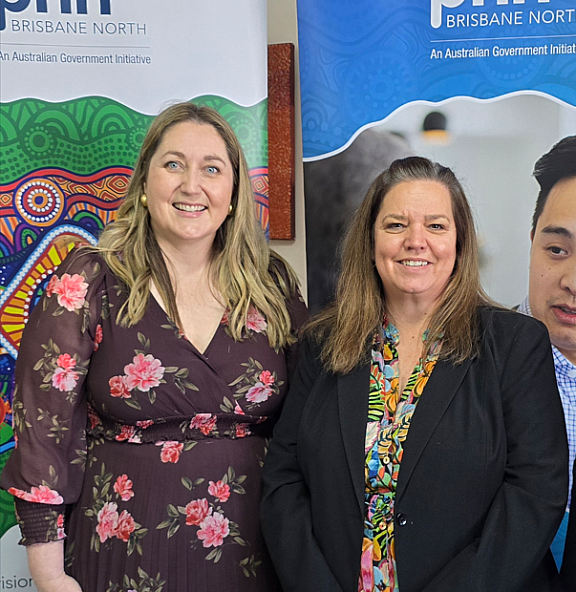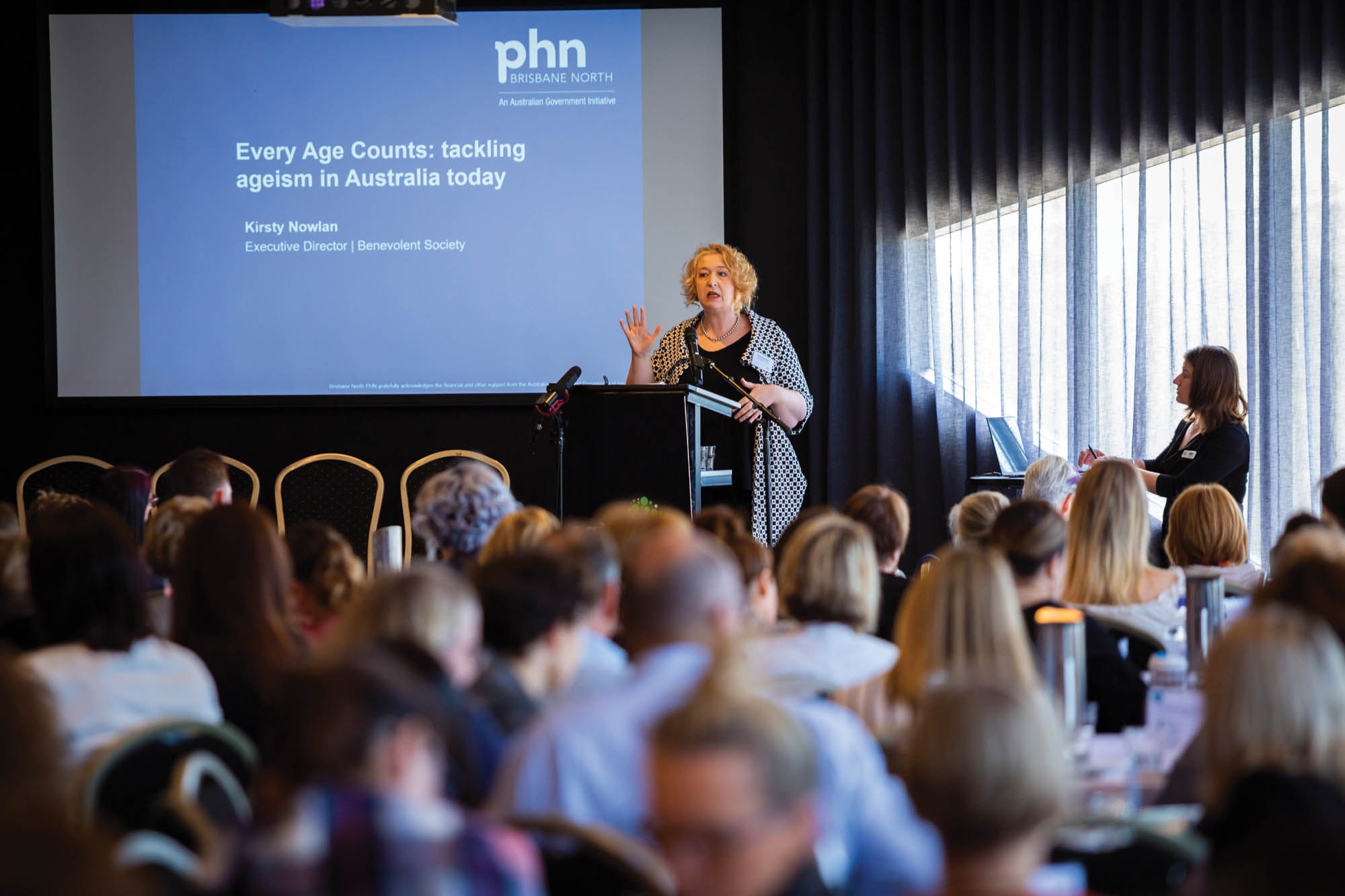
Announced: North Brisbane and Moreton Bay Medicare Mental Health Centres opening from July
Mar 27, 2025
Oct 07, 2019

Ageism and ageist stereotypes must be acknowledged as commonplace in society as a first step in preventing discrimination against older people, according to a keynote speaker at the recent Brisbane North Annual Aged Care Forum.
Kirsty Nowlan is the Executive Director of the Benevolent Society and spoke at the forum on 12 September 2019 about the advocacy campaign it is running against ageism called Every Age Counts.
“Ageism can happen to people at any age,” Ms Nowlan said, which she defined as “stereotyping, discrimination and mistreatment based solely upon age.”
However, she explained that the Every Age Counts campaign is, “specifically interested in ageism against older people, which comes from negative attitudes and beliefs about what it means to get older.”
Technical definitions aside, Ms Nowlan said we actually know what ageism feels like.
“Does this make me look old?” is an often heard refrain from friends, wives and mothers, motivated by a fear of ageing, Ms Nowlan said.
“For most of us, we encounter ageism firstly in an incident that happens to someone else,” she said.
“Or it may be a first time you take your parent to a doctor, because they're sick, not old, and the doctor talks to you, not them.
“And can we all just acknowledge that the systemic abuse of older people in institutions has, at its foundations, the sure and steady belief that some lives matter less than others.”
Even well-intentioned expressions such as ‘sweetie’ can be construed by an older person as belittling and Ms Nowlan proposed using a person’s name instead.
According to Benelovent Society research, Ms Nowlan said that 71 per cent of people surveyed had not thought about ageism, but when prompted 72 per cent thought it was important.
Furthermore, only 16 per cent considered themselves active in doing something about it.
“I suggest our first task is to make ageism a thing in this country,” Ms Nowlan said.
“What we need to do is start naming those experiences as what they are. We are yet to start calling it discrimination and we need to start. Because this is fundamentally an othering process. A creation of us and them,” she said.
The event’s other presenters included aged care consumer Daphne Pirie AO MBE who talked about using life’s experiences to survive old age with dignity.
Ms Pirie spoke from personal experience about her childhood, through to her recent health issues and caring for her husband before he passed away.
The program also included a Reablement Panel Discussion, moderated by BallyCara’s Paul Johnson.
Other interactive sessions included an on-stage interview between Bronwyn Bidstrup from COTA and Zelda Lawrie, a contributor to the Faces of Ageing photo exhibition shown at the forum.
Ruth Northcott from the University of the 3rd Age explained how caring for people’s health involved more than just physical care, and stressed the importance of ongoing learning, personal growth and social connection for healthy ageing.
LASA Queensland State Manager Chris Edith provided a general sector update, including the latest on the Royal Commission and the new Aged Care Standards.
Government contributions to the program included Joshua Maldon, from the Home Support and Assessment Branch at the Commonwealth Department of Health, who spoke on reablement in aged care services.
Also presenting was Andy Carter from Metro North Hospital and Health Service. As Director of Nursing, Community and Oral Health, Mr Carter spoke about the role of the Aged Care Ambassador.

We acknowledge the Traditional Custodians within our region: the Jagera, Turrbal, Gubbi Gubbi, Waka Waka and the Ningy Ningy peoples of where we meet, work and learn. Brisbane North PHN is committed to reconciliation. Our vision for reconciliation is where the stories of our First Nations’ people are heard and shared, and networks are formed.